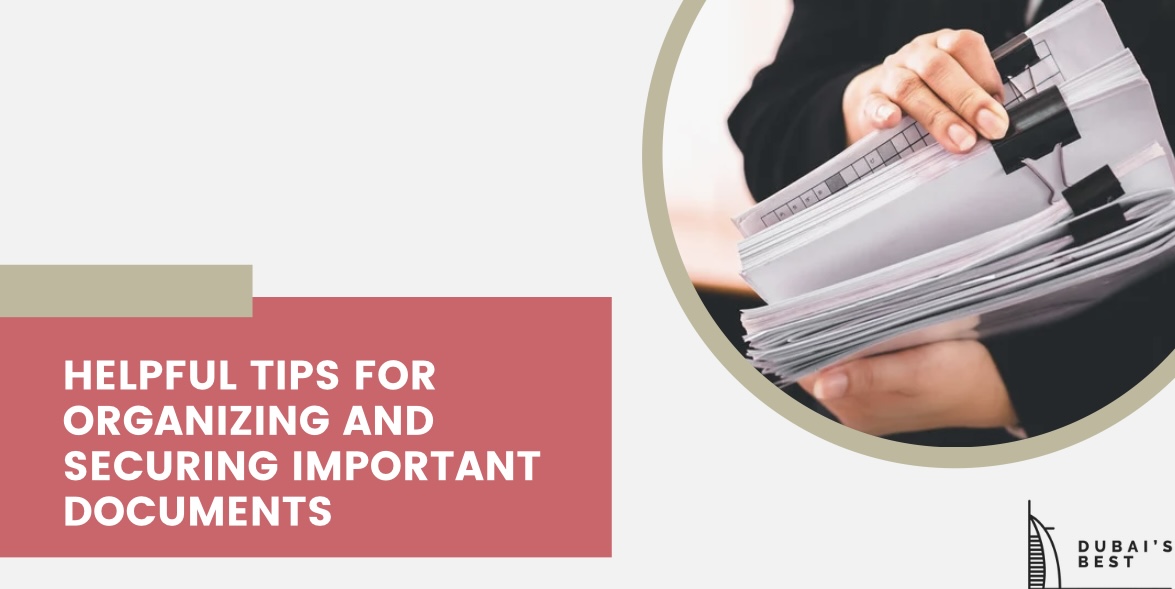Helpful Tips for Organizing and Securing Important Documents
If you’re like most people, your essential documents are strewn about in piles or stuffed willy-nilly into a desk drawer or two, where they’re difficult to find when you need them.
This makes it hard to find things and increases the chance that you’ll lose something. Here are all the tips you need in organizing your important documents safely.
1. Gather vital documents
For each type of document, it’s vital to keep both the original and copies in your safe place. By keeping originals and copies together—whether in your co-working space or office—you will know where everything is at all times.
If you’re having difficulty deciding what documents should be gathered together, here are a few helpful guidelines:
- If a document can be easily lost or damaged, it should probably be included in your pile. That includes anything that’s important to you and your family or that would cause trouble if they were lost or stolen (like birth certificates and passports).
- If a document has information on it that other people could use to access your money or identity (like social security numbers), it should go into the pile.
- If this document contains information about any complex financial accounts (like bank statements and tax forms), put it in the pile!
2. Create a filing system
Setting up a filing system is the next step in organizing your important documents. The system should be one that you feel comfortable with and allows you to quickly find what you are looking for.
This is especially important for naming conventions, indexing, and labeling. You may want to use different color codes for each category of the document if you have plenty of them or if your memory is not as good as it used to be.
For example, let’s say you’re setting up your own filing system right now. You could create categories such as “Personal” and “Work.”
Then you can create sections within those categories called “Bank Documents,” “Utility Bills,” and so on. You could even create sub-sections within those sections called “Latest Bill,” “Paid Bills,” and the like.
3. Choose where to store documents
Buying a safe on your next payday is one of the best ways to store your papers. It can protect them from fire, water, and theft, and it should be placed in a secure location.
If you have a safe in your home or furnished apartment, be sure that you don’t leave it out where visitors might see it or know its location. Also, make sure that you are able to lock it, so your documents are hard to access should someone try to break in or pick the lock.
If you do not want to keep important documents at home for fear of fire, theft, or other disasters, consider storing them offsite in a safety deposit box at your bank or another facility that offers this service.
Security deposit boxes are typically available 24 hours per day. However, they may close periodically for routine maintenance purposes, so plan accordingly if there is something urgent about retrieving your papers from storage.
4. Choose how to store documents
When it comes to storing important documents, you have a few options. The most secure and accessible choice is to create both paper and digital copies.
Paper copies of your documents can be stored in a fire-resistant safe, ensuring their safety even in the event of an emergency. Using a cloud-based file storage system—like Google Drive or Dropbox—is best for digital copies.
However, if you choose to go this route, make sure that your account is password protected and that the documents are encrypted before upload.
Additionally, it’s best to never store digital versions of critical documents at the exact location as their originals since this poses some security threats.
Another option for protecting vital records is creating multiple backups for each document. Whether these backups are stored on external hard drives or on additional drives within your computer, it doesn’t matter so much as having several different versions of each document available if one copy gets lost or damaged.
Try keeping these backups in different locations (where you keep your original files) so that they don’t all get destroyed at once in an emergency situation like a fire. Also, ensure to regularly check up on them and replace any files that may become corrupted over time.
It’s vital to know how to safely store and organize your documents without worrying about a security breach. This is also where asking for the assistance of a security company can significantly benefit you.
This way, you don’t have to worry about whether your fragile documents are safe or not.
More resources for business owners:
Best Business Consulting Firms in Dubai
Firms for the Best Employment Lawyers in Dubai

